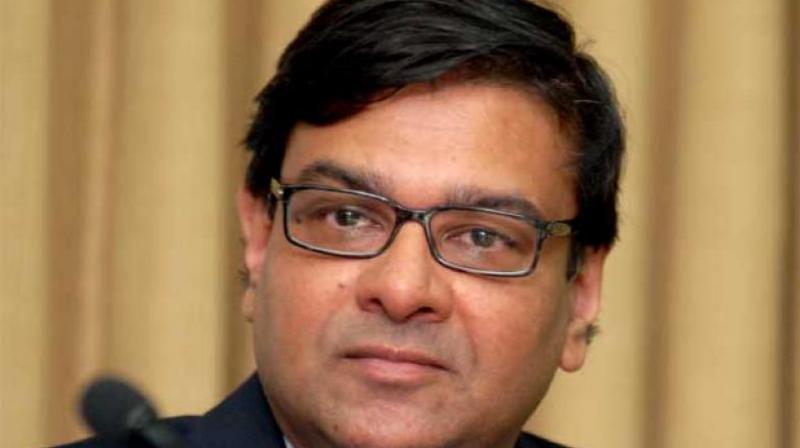First MPC meet: All members favoured rate cut to spur growth
Urjit Patel said the 5 per cent inflation target for the fourth quarter is achievable despite upside risk.

Mumbai: All the six members of the Monetary Policy Committee (MPC) voted in favour of 0.25 per cent cut in interest rate to spur economic growth as RBI Governor Urjit Patel said the 5 per cent inflation target for the fourth quarter is achievable despite upside risk.
In Independent India's first collective interest rate setting decision, MPC, which has three members nominated by the government and the rest from RBI, lowered repo rate to 6.25 per cent from 6.50 per cent at the end of 2-day deliberations on October 4.
Prior to this, the RBI Governor used to decided the interest rate. As per the minutes of the MPC meeting released by the RBI today, all the six members said "yes" while voting on the resolution to reduce the policy repo rate by 25 basis points.
All MPC members have equal votes and in case of a tie, the RBI Governor has the casting vote. As per the minutes, Patel said indicators of economic activity "pointed to a subdued outlook, though gradually improving; further, continuing low capacity utilisation in industry and the persistence of the output gap suggested that pricing power is likely to remain low".
RBI Deputy Governor R Gandhi and Executive Director Michael Debabrata Patra are the two other nominees of the central bank on the MPC. Government nominees on the Committee are Chetan Ghate (Professor, Indian Statistical Institute), Pami Dua (Director, Delhi School of Economics), and Ravindra H Dholakia, (Professor, Indian Institute of Management, Ahmedabad).
Other members, while favouring the 0.25 per cent rate cut, opined it was time good time to support growth. Patel further said high frequency data embedded in RBI's forward-looking surveys as well as daily movements in prices of fruits and vegetables, cereals and even pulses across the country gave some confidence that the "inflation target of 5 per cent for Q4 of 2016-17 can be achieved".
Therefore, while our model-based projections indicated upside risks to the target, a calibrated policy judgement was warranted, given that some space for policy action had opened up with the fall in inflation in the August reading, he said.
"Nonetheless, inflation outcomes in Q4 will have to be carefully and continuously monitored as upside risks, albeit lower now than before, persist," the Governor said.
As per the minutes, Gandhi said that while risks to India's growth from a still fragile global economy have increased, particularly through the trade channel, risks to inflation from global factors may be easing, going by the observed high intensity and spread of global disinflation.
"From amongst the domestic sources of risks to inflation, I see the maximum comfort coming from pulses. The first advance estimates of kharif foodgrains point to pulses production rising by 57 per cent this year," he said.

